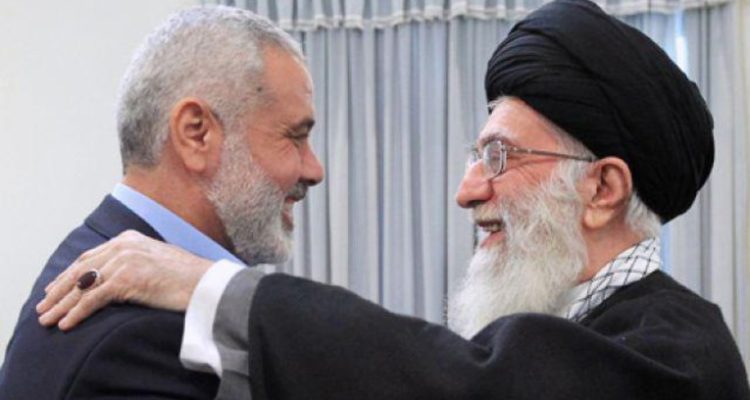Saudi Arabian Crown Prince Mohammed bin Salman dubbed Iranian Supreme Leader Ali Khamenei “the new Hitler of the Middle East,” demonstrating the escalating tensions between the two countries while issuing a dire warning.
By: World Israel News Staff
In an interview with the New York Times Thursday, the Saudi Arabian prince and defense minister called the Iran’s Supreme Leader “the new Hitler of the Middle East.”
“We learned from Europe that appeasement doesn’t work. We don’t want the new Hitler in Iran to repeat what happened in Europe in the Middle East,” the Times quoted Crown Prince Mohammed bin Salman as saying.
He was apparently referring to the tragic Munich Agreement signed by Germany, Great Britain, France and Italy in September 1938 – a year before the start of World War II – permitting Nazi Germany’s annexation of portions of Czechoslovakia. Then British Prime Minister Neville Chamberlain promised it would bring “peace for our time,” and the phrase has become associated with appeasement.
Iran and Saudi Arabia: Arch Rivals
The Sunni Muslim kingdom of Saudi Arabia and Shi’ite Iran are arch rivals who back opposing sides in political confrontations throughout the region, such as the Syrian civil war and the war in Yemen. Tensions between the two regimes have escalated significantly in recent months.
Iran has been working to expand its influence in the Middle East by using proxies, such as the Hezbollah terror group, and creating a land corridor to the Mediterranean – a boost for its alliance and a significant danger to Israel.
On Side with US, Israel
“As ISIS moves out, Iran moves in,” Prime Minister Benjamin Netanyahu tweeted earlier this month, following up on previous warnings. “Iran wants to establish itself militarily in Syria, right next to Israel. Israel will not let that happen,” he asserted.
Bin Salman also “praised President [Donald] Trump as ‘the right person at the right time’ — the Saudis and their Arab allies were slowly building a coalition to stand up to Iran,” the Times said.
With the Islamic Republic as a common enemy, relations between Riyadh and Jerusalem have been warming significantly, reports indicate.
Saudi Arabia’s ‘Arab Spring’
According to Times reporter Thomas Friedman, who interviewed the prince, “the most significant reform process underway anywhere in the Middle East today is in Saudi Arabia… Though I came here at the start of Saudi winter, I found the country going through its own Arab Spring, Saudi style.
“Unlike the other Arab Springs — all of which emerged bottom up and failed miserably, except in Tunisia — this one is led from the top down by the country’s 32-year-old crown prince, Mohammed bin Salman, and, if it succeeds, it will not only change the character of Saudi Arabia but the tone and tenor of Islam across the globe,” he wrote.




